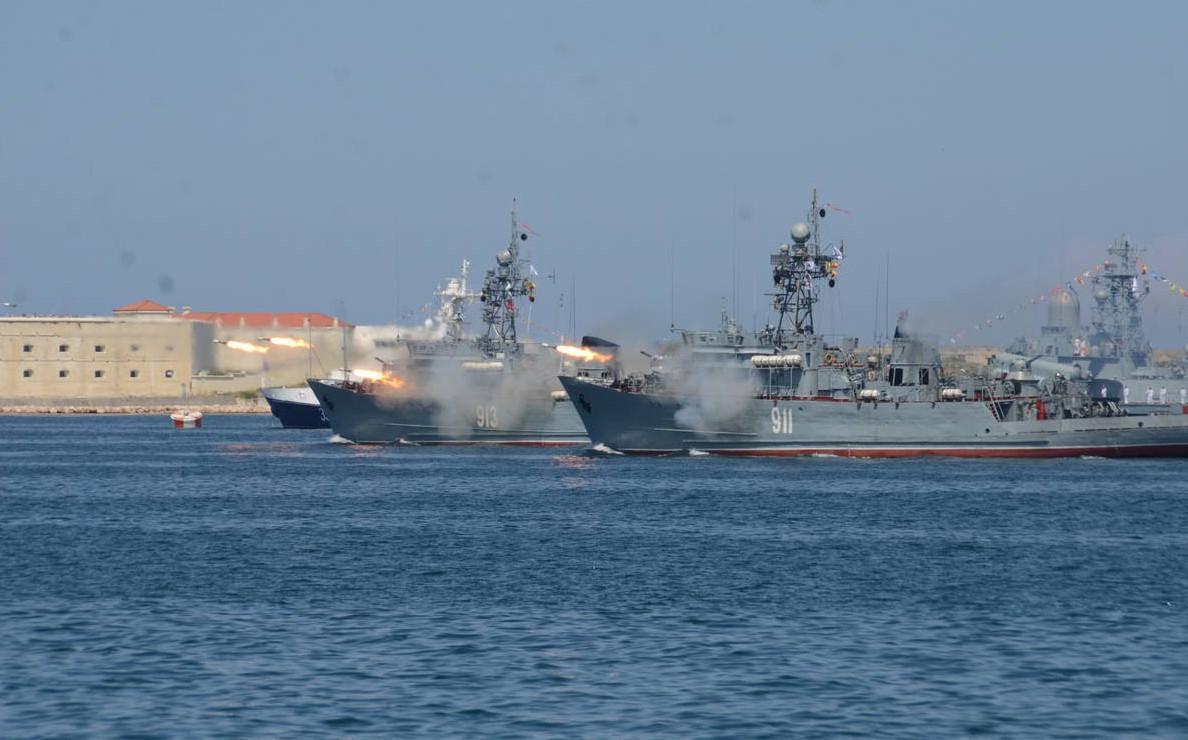Russia says navy carried out live fire exercise in Black Sea
MOSCOW

Russia's navy carried out a live fire "exercise" in the Black Sea, Moscow's defence ministry said Friday, days after the Kremlin declared it would consider ships travelling to Ukraine through the waterway potential military targets.
A missile boat from Moscow's Black Sea Fleet "carried out live firing of anti-ship cruise missiles at the target ship" in the northwestern part of the Black Sea, Russia's defence ministry said on Telegram.
"The target ship was destroyed as a result of a missile strike," it said.
Ships and fleet aviation had also "worked out actions to isolate the area temporarily closed to navigation, and also carried out a set of measures to detain the offending ship," it added.
It did not specify exactly where the exercise had taken place.
After pulling out of a deal facilitating the safe shipments of grain from Ukraine, the Kremlin said Wednesday it would consider cargo ships destined for Ukraine via the Black Sea potential military targets.
Moscow on Wednesday banned traffic on the northwestern and southeastern parts of the sea.
Ukraine also said it had prohibited navigation on "the northeastern part of the Black Sea and the Kerch Strait" near Crimea, making navigation in most of the Black Sea perilous for vessels.
Ukraine has previously said it would be ready to continue with grain exports from its southern ports following Moscow's exit from the deal.
It has called on the UN and neighbouring countries to secure safe passage for cargoes through joint patrols.
Russia and China's navies also carried out a joint exercise in the Sea of Japan, Russia's TASS news agency on Friday quoted the defence ministry as saying.
"During joint exercises, the fighters destroyed a floating mine mock-up and practiced repelling an attack coming from a high-speed small target," TASS said.
On the battlefield, Ukrainian forces are using United States-supplied cluster munitions, the White House said, as Kyiv seeks momentum in its grinding counteroffensive.
Washington provided the weapons to Ukraine for the first time earlier this month as Kyiv attempts to dislodge entrenched Russian forces and retake land lost in the early months of Moscow's military operation last year.
The weapons, which disperse up to several hundred small explosive charges that can remain unexploded in the ground, are banned by many countries because of the long-term risks they pose to civilians.
Ukraine's forces started using the munitions "in the last week or so", White House National Security Council spokesman John Kirby told reporters on Thursday.
"They're using them appropriately, they're using them effectively and they are actually having an impact on Russia's defensive formations and Russia's defensive manoeuvring," he said.
Moscow's forces are entrenched across swathes of southern and eastern Ukraine and over a month into Kyiv's counteroffensive, large parts of the front appear to be frozen.
Earlier this week a senior presidential aide in Kyiv told AFP the operation would be "long and difficult".
After Russia launched its military operation last year, its warships blockaded Ukraine's ports until the two sides agreed to the grain export deal, brokered by the United Nations and Türkiye.
That enabled the export of more than 32 million tonnes of Ukrainian grain over the last year, bringing relief to countries facing critical food shortages such as Afghanistan, Sudan and Yemen.
But Moscow said Monday it was exiting the deal, after months of complaining that provisions allowing the export of Russian food and fertilisers had not been honoured
Since the deal collapsed Ukraine has accused Russia of targeting grain supplies and infrastructure vital to grain shipments.
A strike on Odesa had destroyed 60,000 tonnes of grain meant for export from the major global producer, the Ukrainian agriculture ministry said.
United Nations Secretary-General Antonio Guterres said the effect of the attacks went well beyond Ukraine.
"We are already seeing the negative effect on global wheat and corn prices which hurts everyone, but especially vulnerable people in the global south," Guterres said in a statement from his spokesman, Stephane Dujarric.
















